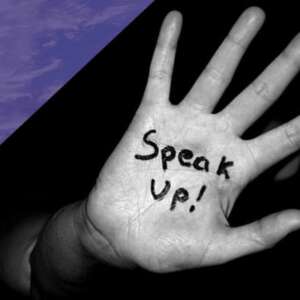 The United Nations defines domestic abuse/domestic violence/intimate partner violence as “a pattern of behaviour in any relationship that is used to gain or maintain power and control over an intimate partner”. It is provided that the abuse can be physical, sexual, emotional, economic, or psychological actions or threats and it can happen to anyone of any race, age, sexual orientation, religion, or gender. It can occur within a range of relationships including couples who are married, living together or dating. Victims of domestic abuse may also include a child or other relative, or any other household member.
In Sri Lanka, the enacted legislation Prevention of Domestic Violence Act (No. 34 of 2005) only applies to persons in a legally recognised relationship as it refers to “the spouse, ex-spouse or cohabiting partner.”
What if you’re LGBTQIA+?
Perera, addressing this piece of legislation, shared that because of the nature of LGBTQIA+ relationships and how they are not accepted in our country, it is unlikely that such a person may seek justice via this legal provision. However, by virtue of being a citizen, regardless of your gender identity or sexual orientation, you are afforded a set of fundamental rights. Therefore you are entitled to protection regardless of whether it is acquired under this particular act or not.
Perera noted that protection may be sought under the Penal Code Ordinance No. 2 of 1883 and the Code of Criminal Procedure Act No. 15 of 1979. He said that as a citizen you are entitled to make a complaint against another for their violent acts, regardless of the nature of their relationship to you. However, once again Perera noted that in practice when it comes to reporting domestic violence, even in the case of the protected marriage relationship – the authorities are quite flippant. “Even when you go to the Women and Childrens’ Bureau, officers tend to lean towards advising the couple in the hopes of reconciliation,” Perera said, adding that where even married women face difficulty placing a complaint and being taken seriously, most LGBTQIA+ persons face far more obstacles in seeking justice.
The United Nations defines domestic abuse/domestic violence/intimate partner violence as “a pattern of behaviour in any relationship that is used to gain or maintain power and control over an intimate partner”. It is provided that the abuse can be physical, sexual, emotional, economic, or psychological actions or threats and it can happen to anyone of any race, age, sexual orientation, religion, or gender. It can occur within a range of relationships including couples who are married, living together or dating. Victims of domestic abuse may also include a child or other relative, or any other household member.
In Sri Lanka, the enacted legislation Prevention of Domestic Violence Act (No. 34 of 2005) only applies to persons in a legally recognised relationship as it refers to “the spouse, ex-spouse or cohabiting partner.”
What if you’re LGBTQIA+?
Perera, addressing this piece of legislation, shared that because of the nature of LGBTQIA+ relationships and how they are not accepted in our country, it is unlikely that such a person may seek justice via this legal provision. However, by virtue of being a citizen, regardless of your gender identity or sexual orientation, you are afforded a set of fundamental rights. Therefore you are entitled to protection regardless of whether it is acquired under this particular act or not.
Perera noted that protection may be sought under the Penal Code Ordinance No. 2 of 1883 and the Code of Criminal Procedure Act No. 15 of 1979. He said that as a citizen you are entitled to make a complaint against another for their violent acts, regardless of the nature of their relationship to you. However, once again Perera noted that in practice when it comes to reporting domestic violence, even in the case of the protected marriage relationship – the authorities are quite flippant. “Even when you go to the Women and Childrens’ Bureau, officers tend to lean towards advising the couple in the hopes of reconciliation,” Perera said, adding that where even married women face difficulty placing a complaint and being taken seriously, most LGBTQIA+ persons face far more obstacles in seeking justice.
 “There is this supremacist mentality in this country, just like the bias towards the Sinhala majority there is a bias towards the straight male and female, over everyone else; anyone who doesn’t fall squarely within those boxes are treated differently,” he said. Additionally, Perera also explained that when it comes to relief in matters like domestic violence, the socio economic factors play an important role. Your status in society may dictate how much influence you have over the authorities and them taking your complaints seriously.
Making use of your protections
Despite this however, when speaking to Sri Lanka Police ASP Fredrick U.K. Wootler, he shared that regardless of the nature of your relationship, if you are being abused, then by the simple virtue of being a citizen of this country, you are entitled to seek protection.
Wootler said that in terms of relief you can either file a petition at the Magistrate Court regarding your grievance and the relief you seek, or you are well within your rights to go to your nearest police station and file an official complaint against your partner. He said: “The matter can be a citizen making a complaint against another citizen. The fact of your relationship status should not matter in such an instance, if a crime has been committed against another then you are encouraged to file a complaint with the police.”
While ASP Wootler assures that you will be afforded the protection you are owed as a citizen of this country, Attorney Perera remained sceptical considering his past experiences when dealing with the police.
While each individual case may differ owing to the varying different factors and circumstances, it must be noted that regardless of your sexual orientation or gender identity, if you are experiencing a form of IPV then as a citizen of Sri Lanka you are owed protection from the State. So, we encourage that you do not hesitate to seek help.
“There is this supremacist mentality in this country, just like the bias towards the Sinhala majority there is a bias towards the straight male and female, over everyone else; anyone who doesn’t fall squarely within those boxes are treated differently,” he said. Additionally, Perera also explained that when it comes to relief in matters like domestic violence, the socio economic factors play an important role. Your status in society may dictate how much influence you have over the authorities and them taking your complaints seriously.
Making use of your protections
Despite this however, when speaking to Sri Lanka Police ASP Fredrick U.K. Wootler, he shared that regardless of the nature of your relationship, if you are being abused, then by the simple virtue of being a citizen of this country, you are entitled to seek protection.
Wootler said that in terms of relief you can either file a petition at the Magistrate Court regarding your grievance and the relief you seek, or you are well within your rights to go to your nearest police station and file an official complaint against your partner. He said: “The matter can be a citizen making a complaint against another citizen. The fact of your relationship status should not matter in such an instance, if a crime has been committed against another then you are encouraged to file a complaint with the police.”
While ASP Wootler assures that you will be afforded the protection you are owed as a citizen of this country, Attorney Perera remained sceptical considering his past experiences when dealing with the police.
While each individual case may differ owing to the varying different factors and circumstances, it must be noted that regardless of your sexual orientation or gender identity, if you are experiencing a form of IPV then as a citizen of Sri Lanka you are owed protection from the State. So, we encourage that you do not hesitate to seek help. 